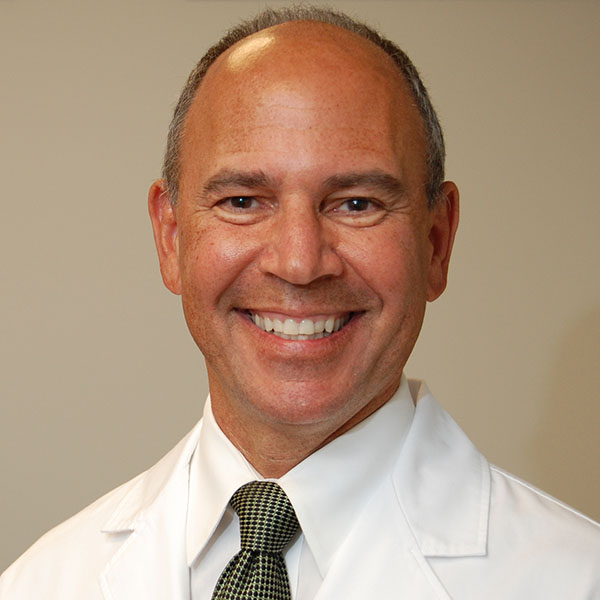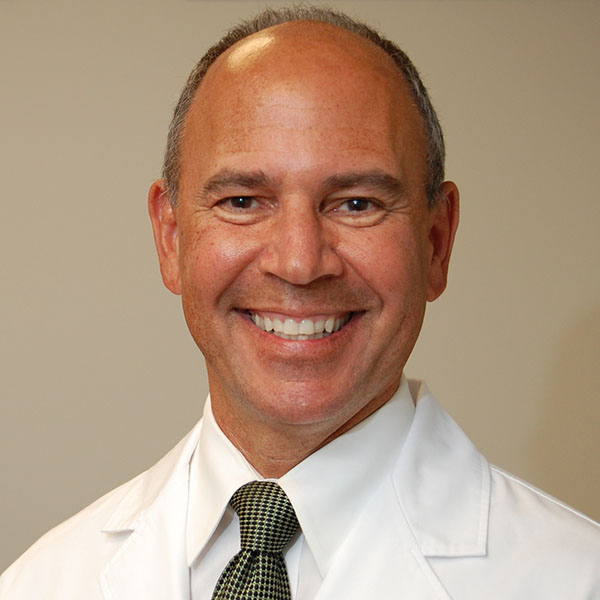
How well do you score on brain health?

Need another jolt of motivation to shore up a resolution to shed weight, sleep more soundly, boost nutrition or exercise levels, or cut back on alcohol? Then you'll be pleased to learn that any (and all) of these efforts can also add up to better brain health.
An international study led by researchers at the McCance Center for Brain Health at Massachusetts General Hospital devised and validated a Brain Care Score (BCS) card that makes it easy to total up what you're doing well and where you might do better. The prize is a healthier brain — specifically a lower risk for dementia and strokes.
Designed to predict how current habits might impact future brain health, the user-friendly scorecard is apparently the first of its kind, says Dr. Andrew Budson, a lecturer in neurology at Harvard Medical School.
"It's a real service that the researchers have developed a scale like this and completed the first study to determine if scoring worse on this scale raises your risk for dementia and stroke," says Dr. Budson, who wasn't involved in the analysis. "On one hand, no one's done something quite like this before. On the other, however, it's really wrapping together health factors everyone has known for a number of years in new packaging."
What's included on the scorecard?
Called the McCance Brain Care Score, the card tallies points from 12 physical, lifestyle, and social-emotional domains.
Physical components relate to
- blood pressure
- blood sugar
- cholesterol
- body mass index (BMI).
Lifestyle components include
- nutrition
- alcohol intake
- smoking
- aerobic activities
- sleep.
Social-emotional factors inquire about
- stress management
- social relationships
- meaning in life.
Each response is given a score of 0, 1, or 2, with the highest possible score totaling 21. Higher scores suggest better brain care.
"All these physical and lifestyle factors can contribute to the risk of dementia to some extent through strokes," Dr. Budson says. "Those that aren't a risk through strokes are usually related to the fact that a healthy brain is a brain that's using all of its parts. Engaging in healthy relationships and meaningful activities helps us maintain good brain structure and function."
What did the analysis involve?
The study was published online in Frontiers of Neurology in December 2023. It involved nearly 399,000 adults ages 40 through 69 (average age 57; 54% women) who contributed personal health information to the UK Biobank.
During an average follow-up period of 12.5 years, participants recorded 5,354 new cases of dementia and 7,259 strokes. Researchers found that participants with higher Brain Care Scores at the study's start had lower risks of developing dementia or strokes over time.
These threats to health and independence take a stunning — and growing — toll on people in the US. Dementia affects one in seven Americans, a rate expected to triple by 2050. Meanwhile, more than 795,000 people in the United States suffer a stroke each year, according to the CDC.
What did the study find?
Each five-point step higher in the BCS rating assigned when the study began was linked to significantly lower risks of dementia and stroke, with those odds varying by age group:
- Participants younger than 50 at the study's start were 59% less likely to develop dementia and 48% less likely to have a stroke with each five-point higher score on BCS.
- Participants 50 through 59 at the study's start were 32% less likely to develop dementia and 52% less likely to have a stroke with each five-point higher score on BCS.
But those brain disease benefits appeared to diminish for those older than 59 at the study's start. This group experienced only 8% lower odds of dementia and a 33% lower risk of stroke with each five-point higher score on BCS. Study authors theorized that some of these participants may have already been experiencing early dementia, which is difficult to detect until it progresses.
"I feel very comfortable that the study's conclusions are entirely correct, because all the factors that go into its BCS are well-known things people can do to reduce their risk of stroke and dementia," Dr. Budson says.
What are the study's limitations?
However, Dr. Budson notes that the study did have a couple of limitations,. The UK Biobank fell just short of collecting all the components of the BCS in its dataset, lacking meaning-of-life questions. So its scores ranged from 0 to 19, not up to 21. "It's a practical limitation, but it should be acknowledged that so far, there have been no studies to validate the actual 21-point scale they're recommending we use," he says.
The analysis also evaluated participants' scores at just one point in time instead of several, Dr. Budson says. Future research should determine whether people can lower their stroke and dementia risk by improving their BCS over time with behavior and lifestyle changes.
How can you play this game at home?
While better brain health may be the clear prize of a higher score, it's far from the only benefit. That's because improving any health component of the BCS also benefits our overall well-being.
"By improving these factors, not only will people help their brain, but they'll also help their heart and reduce their risk of cancer," Dr. Budson adds. "These factors will absolutely also improve your psychological health, which is certainly an important part of brain health."
The scale's simple breakdown of health factors also makes it easy to focus on tweaking one or two without getting overwhelmed.
"Let's say someone's nutrition isn't perfect — and they know it — but they're not willing to change their diet. Fine. They can then decide to do more aerobic exercise, for example, or to stop drinking, or to get the sleep their body needs," he says.
What one change could put you on a path to better brain health?
If he had to choose just one factor to improve brain health, Dr. Budson would focus on meaning of life, "which means you generally feel your life has meaning or purpose," he says. To do that, he suggests giving deep, quiet thought to what you wish your life's purpose to be, whether you expect to live a long time or just a few years.
"Once you have a purpose, then you have a reason to follow through with assessing all the other items on the BCS scale and seeing what you can do so you'll be around longer, and be competent and capable longer, to help fulfill the meaning and purpose of your life," he says.
About the Author

Maureen Salamon, Executive Editor, Harvard Women's Health Watch
Maureen Salamon is executive editor of Harvard Women’s Health Watch. She began her career as a newspaper reporter and later covered health and medicine for a wide variety of websites, magazines, and hospitals. Her work has … See Full Bio View all posts by Maureen Salamon
About the Reviewer

Howard E. LeWine, MD, Chief Medical Editor, Harvard Health Publishing
Dr. Howard LeWine is a practicing internist at Brigham and Women’s Hospital in Boston, Chief Medical Editor at Harvard Health Publishing, and editor in chief of Harvard Men’s Health Watch. See Full Bio View all posts by Howard E. LeWine, MD

Want to stop harmful drinking? AA versus SMART Recovery

Ready to address excessive drinking in your life? Many people find peer support helps them take steps toward recovery. Two well-known self-help organizations built around peer support are Alcoholics Anonymous (AA) and Self-Management and Recovery Training (SMART Recovery). While some people seeking recovery even attend both programs, others forego both options.
Why do people choose those different paths — and what do they like, dislike, and find helpful about their chosen option? To find out, researchers questioned 80 participants enrolled in a two-year study about recovery from alcohol use disorder (20 each in AA, SMART Recovery, both, or neither).
Dr. John F. Kelly, professor of psychiatry in addiction medicine at Harvard Medical School, led the study, which was published in the Journal of Substance Use and Addiction Treatment. Here he explains key findings and shares his perspective and advice for people seeking peer support to stop problematic drinking.
Camaraderie: A common theme for both groups
The most striking finding was that for people attending either group, camaraderie was by far the most important aspect.
“There’s something about the connection with other people with similar experiences that helps decrease the self-stigma and shame that people have around this issue,” says Dr. Kelly, who founded the Recovery Research Institute at Massachusetts General Hospital. “Seeing role models of people who found solutions and a way out, and championing these examples of successful recovery, is very powerful,” he adds.
What else do people appreciate about AA?
Founded in 1935, AA has been around far longer than SMART Recovery, which began in 1990. AA’s popularity makes it easy to find meetings, which was one benefit cited in the study. “Within a 45-minute drive of downtown Boston, there are 1,800 AA meetings a week, compared with just 30 SMART meetings,” says Dr. Kelly.
You can also find a wider variety of specialized AA meetings, including those catering to different age groups, women, or LGBTQ+ people, for example. Larger metropolitan areas may have meetings conducted in different languages, as well.
AA follows a 12-step program, defined as a set of spiritual principles that help people achieve sobriety. Yet hardly anyone in the study mentioned spirituality in their responses, says Dr. Kelly. In fact, other research suggests that about half the people attending AA don’t seem to have a strong sense of needing to believe in a formal deity or higher power. “Some people say that connection with other people is what makes it a spiritual experience,” he says.
What else draws people to SMART Recovery?
The study results confirm years of anecdotal reports about why people choose SMART Recovery over AA, says Dr. Kelly. “What attracts people to SMART Recovery is the organization’s focus on science and clinical evidence,” he says.
Their approach incorporates cognitive behavioral therapy (CBT) and motivational psychology into their support groups. The goal is to help participants to recognize and cope with the emotional and environmental triggers for their drinking. Still, in this study, people who chose SMART Recovery stayed with it for the social aspects, according to responses about what they like best about the program, says Dr. Kelly.
Compared to people who attended AA, study participants who chose SMART tended to have less severe problems with alcohol use. They had more education, higher rates of employment, and greater economic resources. They were also less likely to have had prior treatment or involvement with the criminal justice system. SMART may be a particularly good fit for people with that kind of profile.
People who attended both AA and SMART Recovery groups tended to be the most severely affected by their problems with alcohol, and were seeking anything and everything to get help. Those who attended neither program were less seriously affected.
What are other differences between AA and SMART Recovery?
While AA groups are led by members in recovery, SMART groups are led by trained facilitators who are not required to be in recovery themselves.
In the study, that lack of “lived experience” wasn’t perceived as a negative, although some people mentioned that they didn’t like some of the facilitators, Dr. Kelly says. However, a trained facilitator can gently stop and redirect members who engage in meandering, lengthy, and potentially irritating monologues (known as a “drunkalogue”) that may dominate group discussions. AA group leaders don’t intervene in that way and have no formal group facilitation training.
However, AA strongly encourages people who join the fellowship, as it is called, to have a sponsor. Sponsors are experienced members with at least one year of recovery who serve as mentors for new members and are available between meetings. SMART Recovery doesn’t have formal sponsors, but facilitators encourage people to swap phone numbers and reach out to each other between meetings.
Should you participate in a support group to stop drinking?
“When I’m counseling patients, I lay out the different options and let people decide which program seems like the best personal fit for them,” says Dr. Kelly.
Because AA has been around for much longer, he notes that there’s more evidence about what contributes most to success with this approach. Research shows the three factors that have the biggest positive effect on remission for alcohol misuse are:
- Having a sponsor. This is the single most important factor influencing recovery.
- Attending at least three meetings per week. Consistently showing up, especially during the first year, also appears to boost the odds of recovery.
- Speaking at meetings. Saying something aloud in the group meetings — even if it’s just a sentence or two — reinforces the likelihood of ongoing recovery. It also makes it easier to connect with other members in the “meeting after the meeting.”
About the Author

Julie Corliss, Executive Editor, Harvard Heart Letter
Julie Corliss is the executive editor of the Harvard Heart Letter. Before working at Harvard, she was a medical writer and editor at HealthNews, a consumer newsletter affiliated with The New England Journal of Medicine. She … See Full Bio View all posts by Julie Corliss
About the Reviewer

Howard E. LeWine, MD, Chief Medical Editor, Harvard Health Publishing
Dr. Howard LeWine is a practicing internist at Brigham and Women’s Hospital in Boston, Chief Medical Editor at Harvard Health Publishing, and editor in chief of Harvard Men’s Health Watch. See Full Bio View all posts by Howard E. LeWine, MD